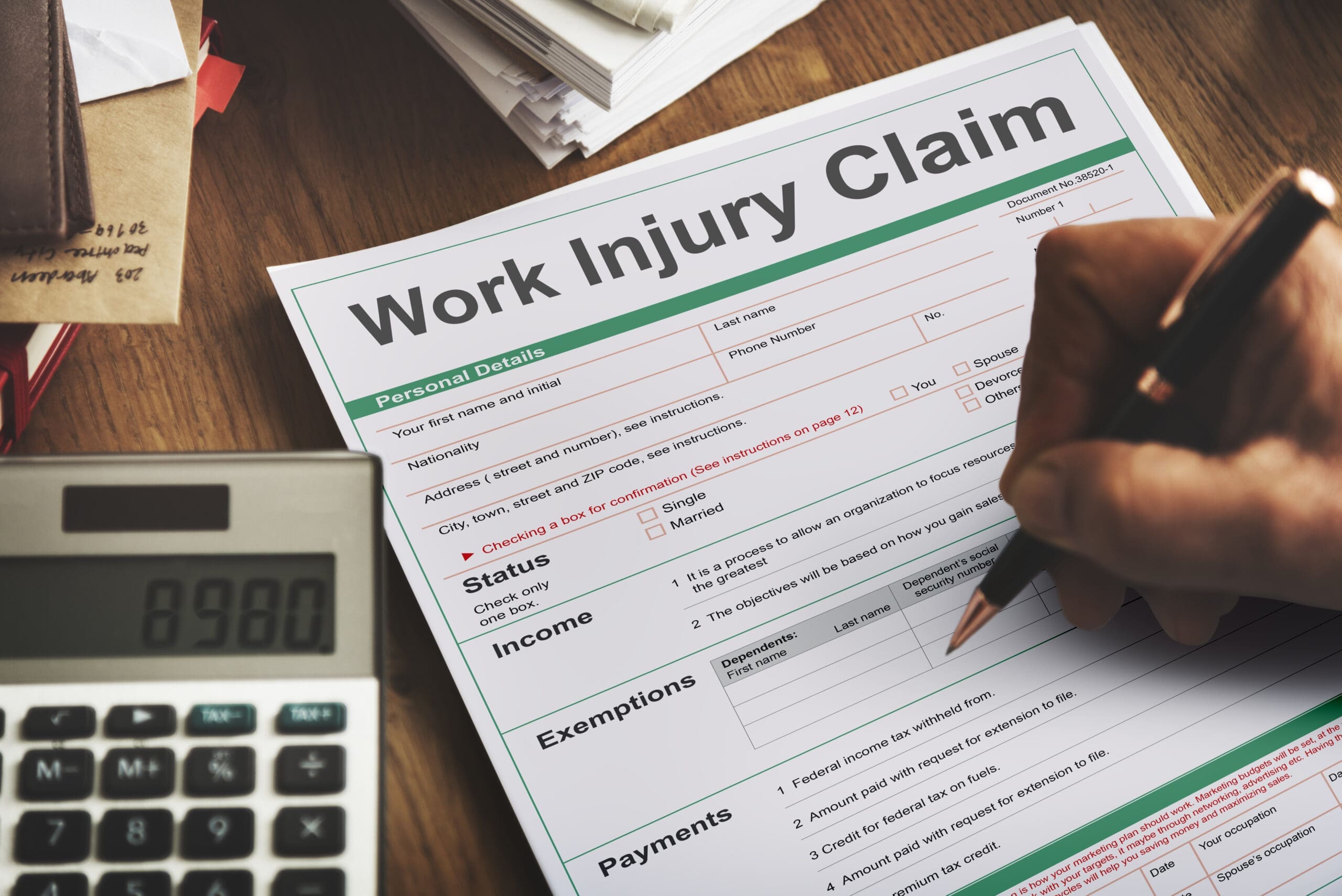What Are Workers Compensation Claims?
Workers compensation claims are formal requests submitted by employees who have been injured or fallen ill due to their job duties. These claims are designed to provide financial and medical support to workers who suffer from work-related injuries or illnesses. The compensation typically covers medical expenses, a portion of lost wages, and sometimes benefits for permanent disabilities. The process is meant to ensure that employees are not financially burdened by incidents that occur while they are performing their job functions.
The Basics of Workers Compensation: A Quick Overview
Workers compensation operates on a no-fault insurance model, meaning that employees can receive benefits regardless of who caused the accident. This system provides a safety net for both employees and employers by facilitating access to necessary medical care and financial support without engaging in lengthy legal battles. Employers contribute to a workers compensation insurance fund, which is then used to cover claims made by their employees. This arrangement helps to create a more stable and supportive work environment.
Why Employees File Workers Compensation Claims
Employees file workers compensation claims for several reasons. Primarily, they seek financial assistance to cover medical expenses and lost wages due to their inability to work while recovering. Claims might also be filed to address long-term disability or permanent impairment resulting from a workplace injury. By filing a claim, employees ensure that they receive the necessary support and protection while they focus on their recovery, without the added stress of financial instability.
The Immediate Effects of Filing a Claim
How a Workers Compensation Claim Affects Your Current Job
Filing a workers compensation claim can have immediate effects on your current employment situation. Depending on the nature of the injury and the workplace environment, the claim may create tension or misunderstandings between you and your employer. It is not uncommon for the workplace dynamic to shift, as colleagues might perceive the claim in different ways. While some employers are supportive and understanding, others may view the claim as a disruption to operations. It is essential to navigate these changes with clear communication and professionalism to maintain positive relationships.
Navigating the Claims Process: What to Expect
The process of filing a workers compensation claim involves several steps, each crucial for a successful outcome. Initially, you must document the injury thoroughly, including medical evaluations and incident reports. Filing the claim promptly is critical, as there are often strict deadlines associated with workers compensation claims. Once the claim is submitted, maintaining regular follow-ups with your insurance provider and employer ensures that the process remains on track and any issues are addressed promptly.
Long-Term Implications for Employment
How Workers Compensation Claims Influence Career Prospects
The long-term implications of a workers compensation claim can significantly impact your career prospects. A claim might affect your employability in various ways, such as influencing how potential employers perceive you. Some employers may have concerns about the potential for future claims or the impact on workplace productivity. As a result, navigating the job market after a claim requires careful consideration and proactive measures to address any potential biases or concerns.
The Role of Employer Perception in Future Job Opportunities
Employer perception plays a pivotal role in shaping future job opportunities. When evaluating candidates, employers may scrutinize a history of workers compensation claims, associating it with potential risks or liabilities. It is crucial to address these perceptions transparently during job interviews. Highlighting your dedication to maintaining a safe and productive work environment, along with emphasizing your skills and achievements, can help alleviate concerns and demonstrate your suitability for the role.
The Legal Perspective
Understanding Your Rights Under Workers Compensation Laws
Understanding your rights under workers compensation laws is essential for navigating the claims process effectively. Employees have the right to receive medical treatment, compensation for lost wages, and protection against retaliation from their employer. Familiarizing yourself with these rights ensures that you are well-informed and can advocate for yourself throughout the process. Consulting with a legal professional specializing in workers compensation can provide additional guidance and support.
The Impact of Claim History on Background Checks
Workers compensation claim history can impact background checks conducted by future employers. While it is illegal for employers to discriminate solely based on a workers compensation claim, some may still harbor biases or concerns. It is beneficial to be prepared to discuss the context of past claims and emphasize your ability to perform effectively in future roles. Addressing any potential issues proactively can help mitigate the impact on your employment prospects.
Addressing Employer Concerns
How to Communicate About Your Claim with Future Employers
When discussing your workers compensation claim with potential employers, approach the conversation with honesty and professionalism. Frame the claim as part of your overall employment journey and emphasize how the experience has contributed to your growth and resilience. By focusing on your skills and positive attributes, you can address any concerns and demonstrate your readiness to contribute effectively to the new role.
Tips for Managing Perceptions and Building Trust
Managing perceptions and building trust with future employers involves several key strategies:
- Highlight Your Skills and Achievements: Showcase your competencies and accomplishments to shift the focus from past claims to your qualifications.
- Demonstrate Reliability: Provide evidence of your dependability and commitment through references and previous performance records.
- Pursue Professional Development: Engage in ongoing training or certification to enhance your skills and demonstrate your commitment to growth.
Recovery and Return to Work
Strategies for a Smooth Transition Back to Work
Returning to work after a workers compensation claim requires careful planning and consideration. Strategies to ensure a smooth transition include:
- Gradual Reintegration: If possible, consider a phased return to work, starting with reduced hours or modified duties to ease back into your role.
- Maintain Open Communication: Keep in touch with your employer to discuss any ongoing needs or accommodations, and to address any concerns that may arise.
- Focus on Health Management: Continue to manage your health proactively to prevent re-injury and demonstrate your commitment to maintaining workplace safety.
How to Demonstrate Your Value Post-Claim
Post-claim, demonstrating your value involves highlighting your contributions and productivity. Provide examples of how you have successfully managed challenges and added value to your team. Show enthusiasm for your role and a proactive attitude towards your responsibilities to reinforce your commitment and capability.
Alternative Career Paths and Employment Opportunities
Exploring New Job Sectors and Roles
If returning to your previous role is not feasible, exploring alternative career paths may be a viable option. Consider job sectors that align with your skills and experience but offer a different work environment or reduced physical demands. Research emerging industries or roles where your expertise can be effectively utilized and where you might find new opportunities for growth and success.
How to Leverage Skills and Experience in Different Industries
Leverage your existing skills and experience by emphasizing transferable competencies. Skills such as project management, problem-solving, and leadership are valuable across various industries. Tailor your resume and job applications to highlight how your background aligns with the requirements of new roles, and use your experience to demonstrate your versatility and adaptability.
Mitigating Negative Impacts
Proactive Steps to Minimize Future Employment Risks
To mitigate potential negative impacts on future employment, consider the following proactive steps:
- Maintain a Positive Online Presence: Develop a professional online profile that showcases your skills, achievements, and positive attributes.
- Engage in Networking: Connect with industry professionals and attend relevant events to enhance your career opportunities and build a supportive network.
- Seek Guidance: Consult career coaches, advisors, or legal experts for personalized strategies to navigate employment challenges and enhance your career prospects.
Seeking Professional Advice: When and Why
Seeking professional advice is crucial when dealing with complex employment and legal issues related to workers compensation claims. Legal experts, career coaches, and financial advisors can provide valuable insights and support, helping you make informed decisions and navigate the challenges effectively. Their expertise can be instrumental in addressing concerns and developing strategies for a successful career transition.
Success Stories and Case Studies
Real-Life Examples of Successful Employment After a Claim
Exploring real-life success stories can provide inspiration and practical insights. Many individuals have successfully navigated the challenges of workers compensation claims and found rewarding new employment opportunities. These stories illustrate the potential for positive outcomes and offer valuable lessons for those facing similar situations.
Lessons Learned from Individuals Who Overcame Challenges
Learning from the experiences of those who have overcome challenges related to workers compensation claims can be highly beneficial. Their stories often reveal effective strategies for managing employer perceptions, transitioning to new roles, and maintaining a positive outlook. By understanding their journeys, you can gain valuable perspectives and practical tips to apply to your own career path.
Conclusion
Summarizing the Impact of Workers Compensation on Employment
Workers compensation claims can have both immediate and long-term effects on employment opportunities. While these claims provide essential support for injured employees, they can also influence employer perceptions and career prospects. Understanding these implications and proactively addressing potential challenges can help mitigate negative impacts and facilitate a successful return to work.
Encouragement for Claimants
Navigating the impact of workers compensation claims on your future employment requires resilience and strategic planning. By focusing on your strengths, seeking professional advice, and exploring new opportunities, you can overcome challenges and build a successful career path. Stay positive and proactive as you move forward, and remember that many individuals have successfully managed these transitions and found fulfilling new roles.
If you have questions or need assistance with your workers compensation claim, Denise Hawthorne Legal is here to help. Contact us today to discuss your situation and explore your options for a successful return to work. We’re dedicated to supporting you every step of the way.


